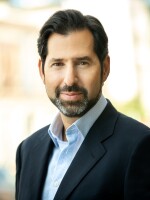Federal Communications Commission Chairman Kevin Martin is a Bush appointee and a former White House aide on economics. So you might think he'd be pro-business.
In fact, Martin says the cable industry has grown so much that the FCC should have the power to regulate it more, as it does broadcast television.
That set off the bureaucratic equivalent of a brawl behind the scenes at the FCC. Some of Martin's seemingly natural conservative allies, such as Republican Commissioner Robert McDowell, are objecting.
"The average consumer has a choice of at least three video providers, with overbuilders and phone companies increasing that menu of options for millions more consumers," McDowell said during a contentious FCC meeting earlier this week. "When competition flourishes, the need for regulation diminishes."
But Chairman Martin wants to force cable companies to offer channels "a la carte" — that is, not in packages but individually, so customers can decide precisely which stations they want. He declined to comment for this story, but he has said in the past that consumers shouldn't have to pay extra for unwanted channels — and shouldn't be forced to allow explicit content into their homes.
Some liberal consumer groups have supported Martin's drive — creating strange bedfellows for his effort. A lot of the argument comes over whether enough people subscribe to cable to trigger a law giving the FCC sweeping new powers. Martin says that enough people do.
Tim Winter, the president of Parents Television Council, says he is combating "a cable industry which is acting like a cartel, where you have basically all the choice of a North Korean election."
Winter's group lobbies against explicit violence, sexuality and profanity in entertainment. Winter says Martin understands the Commission's importance to the larger culture.
"The FCC, outside of the Pentagon, I think has the most important role in our nation," Winter says. "I mean, this is the way we communicate — the public airwaves, electronic communication, cable, satellite, telephone — this is the essence of our democracy."
Kyle McSlarrow, chief spokesman for the cable TV industry, has a different view.
"At this point, we have completely gone off the rails in any sense of a guiding philosophy," says McSlarrow, the president of the National Cable and Telecommunications Association. "This is a republican administration and a republican majority on a commission – we have an incredibly, intensely competitive marketplace."
McSlarrow was a former Energy Department official under President Bush before becoming CEO of the trade group. He says Martin is driven by "his well-documented personal vendetta against the cable industry" and in favor of phone companies, particularly AT&T.
Martin says McSlarrow is driven by his zeal to extend the FCC's fight against broadcast obscenity to the cable industry.
"More deregulation and more respect for free markets is in order," McSlarrow says. "Instead, what we are getting are proposals to increase regulatory burdens and to constrain our industry."
Analyst Blair Levin thinks the effort to extend the agency's reach on cable will lose in the courts, and that Martin's push for a la carte is likely doomed.
"Every chairman of the FCC comes to realize there is a conflict between family values and market values," says Levin, who was chief of staff to then FCC Chairman Reed Hundt under President Bill Clinton. He now advises institutional investors and has no holdings in individual media companies.
Levin says Martin is not able to exercise as much control over the commission as some of his predecessors. But he points out that the chairman has succeeded on a lot of the rest of his agenda at the FCC, and that he is unlikely to let up on cable TV anytime soon.
Copyright 2022 NPR. To see more, visit https://www.npr.org. 9(MDAzMjM2NDYzMDEyMzc1Njk5NjAxNzY3OQ001))






